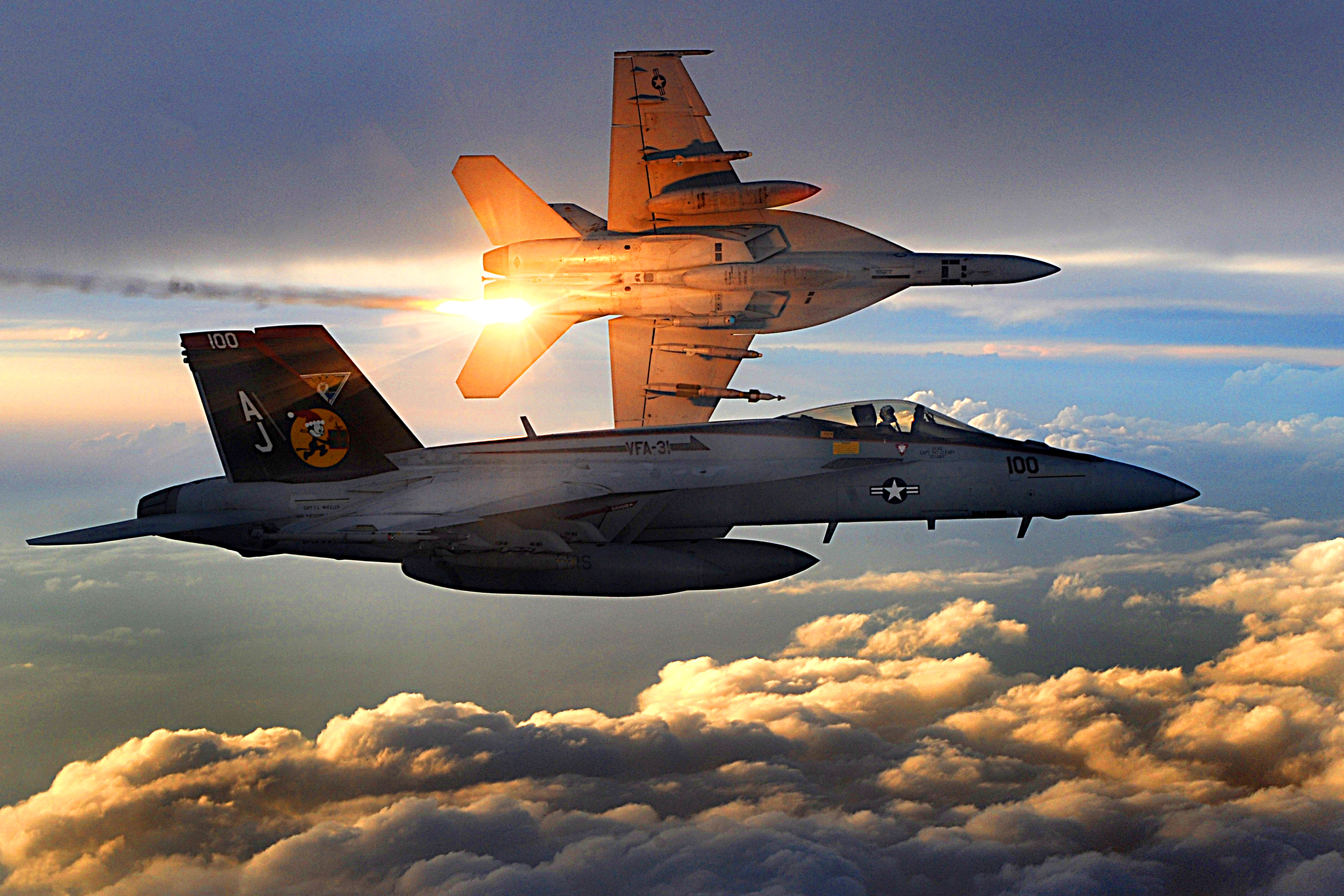 |
| Lightning Rod: F-35 Fighter Family Capabilities and Controversies |
Deputy CNO says both F-35 and UCLASS needed for future carrier air wing - IHS Jane's 360
"The F-35 is absolutely essential in the A2/AD [anti-access/area-denial] environment," said Vice Admiral Joseph Aucoin, deputy chief of naval operations for warfare capabilities. "The way we've shaped our air wing, with the [Boeing F/A-18E/F] Super Hornet becoming more of a truck, and the F-35B and C [on the first day of conflict] being able to [penetrate] into those integrated air defences and the Super Hornet partnering with them as the way to go."
 |
| [Boeing F/A-18E/F] Super Hornet |
 |
| UCLASS Concepts |
He added that both manned and umanned aircraft will be critical to the USN in the future. "We need to find the right balance between manned and unmanned systems, between kinetic and non-kinetic [effects]," he said. He said the creation of a deputy assistant secretary of the navy for unmanned systems and a counterpart in his own office in September will help determine the ideal mix.
Navy leaders: Future rides on unmanned systems -- Defense Systems
Aucoin lauded the Navy’s recent creation of a deputy assistant secretary for unmanned systems, as well as the new N-99 directorate, for placing all things unmanned “under one hat” for better synergy
Aucoin said one of the Navy’s major unmanned initiatives, that the Unmanned Carrier-Launched Airborne Surveillance and Strike program (UCLASS), is still under review. “I am a firm believer that we need that unmanned aircraft in our fleet and it will make the air wing that much better. I think the discussion needs to be not just looking at UCLASS individually, but what does that do to the air wing of the future – what are those capabilities it can bring, not just strike, but command and control, refueling, ISR [intelligence, surveillance and reconnaissance] – there is definitely a need for that aircraft,” he said. “I hope the study or the review of that concludes in a good manner that we can continue on with that program.”
The Future of Naval Capabilities | Center for Strategic and International Studies
The Maritime Security Dialogue brings together CSIS and U.S. Naval Institute, two of the nation's most respected non-partisan institutions. The series is intended to highlight the particular challenges facing the Navy, Marine Corps, and Coast Guard, from national level maritime policy to naval concept development and program design. Given budgetary challenges, technological opportunities, and ongoing strategic adjustments, the nature and employment of U.S. maritime forces are likely to undergo significant change over the next ten to fifteen years. The Maritime Security Dialogue provides an unmatched forum for discussion of these issues with the nation's maritime leaders.
Background/Related:
- From Sky Warrior To UCLASS: Back To The Future Of Carrier-Based Strike? « Breaking Defense - Defense industry news, analysis and commentary
- The U.S. Navy's Big Challenge: UCAS-D versus UCLASS? | The National Interest Blog
- Mabus says delays are hurting UCLASS development -- Defense Systems
- Next Big Future: UCLASS Superdrone a bridge to fully autonomous fighters
- spendergast: SECNAV Sticks With UCLASS Approach fitting GA-ASI Predator C; Congress Says Not Enough - Boeing not happy
- spendergast: GAO - Navy Needs to Match Its UCLASS Requirements and Available Resources
- SEAPOWER - Forbes: Deep Strike Capability Needed in Navy’s UCLASS
Posted: June 11, 2015 4:28 PM -By RICHARD R. BURGESS, Managing Editor
ARLINGTON, Va. — The carrier-based unmanned aerial vehicle that the Navy plans to deploy must be able to strike targets deep inside enemy territory in an anti-access/area-denial (A2AD) environment, said a subcommittee chairman on the House Armed Services Committee (HASC), speaking of the Unmanned Carrier-Launched Aerial Surveillance and Strike (UCLASS) system.
“We’re going to have to have a UCLASS component [of the carrier air wing] that has a deep strike capability,” Rep. Randy Forbes, R-Va., chairman of the HASC’s seapower and projection forces subcommittee, said June 11 at an event at the Army-Navy Club sponsored by the Center for American Security, a Washington-based think tank. “I want it to drop some pretty heavy stuff on some pretty bad people.”
Forbes noted that the Navy refers to UCLASS as a “step or bridge” to the next platform. “Well, if you don’t know what that platform is going to look like, then you basically have a bridge to nowhere,” he said. “At some point in time we have to know what it looks like. I think it’s going to be something that can go through an A2AD defense and drop a rather sizeable payload in that process. I think what the secretary is talking about is that we’re going to have a mix of things coming down the road.”
Forbes also stressed the urgency of moving ahead with development.
No comments:
Post a Comment